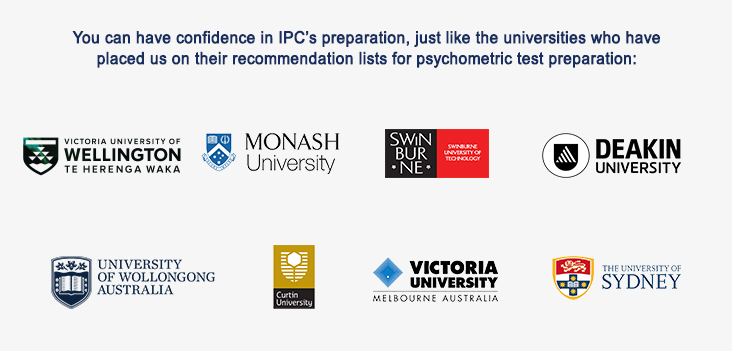Coping with psychometric test anxiety
Many people find the psychometric testing situation to be extremely stressful. If you are feeling stressful, and are anxious and worrying about the prospect of sitting psychometric tests, it is important that you understand the effect that this can have on your psychometric test results. Indeed, an effective proactive strategy to cope with test anxiety and stress is preparing and practicing as much as possible prior to taking the psychometric test.
Test anxiety was once thought to be unidimensional. However there is now evidence that test anxiety is multidimensional. It can be differentiated on four dimensions: worry, emotionality, interference, and lack of confidence (Stober, 2004). In the past, psychological research on coping with test anxiety was focused on the testing situation itself. However more recent research examines not only the psychometric test situation, but also the learning phase and the preparation and practice stage as these are considered equally if not more important to coping with test anxiety.
Stober (2004) describes psychometric test anxiety as a situation whereby test-takers tend to react with heightened anxiety in the face of situations that are related to taking the psychometric test and it’s outcome or result. The two initially distinguished elements of psychometric test anxiety included a cognitive component (worry), and an affective component (emotionality). Worry, in this context, involves general concerns about being evaluated and concerns about failure and the consequences of failure. Emotionality, in this context, refers to the perception of autonomic reactions which are experienced in or in anticipation of the psychometric testing situation. The interference dimension of test anxiety was introduced by Sarason (1984). Interference refers to blocking and distracting thoughts that disturb (i.e. interfere) our performance during psychometric tests.
A major interest in psychometric test anxiety research is how to cope with this anxiety and uncertainty. This research has looked in to ways to eliminate or reduce the impact of the underlying reason for the stress and anxiety. By doing so, the aim is to control and eliminate the negative emotions in order to strengthen and promote adaptive, positive thoughts and emotions, and thus encourage successful psychometric test performance. Findings in this area of research have revealed that proactive coping methods, such as preparation and practicing online psychometric tests, are significantly related to psychometric test taking anxiety and psychometric test performance. That is, practicing online psychometric tests has been shown to decrease test anxiety and improve test results.
A relatively recent study by Stober (2004) looked at how the four dimensions (worry, emotionality, interference, and lack of confidence) are related to the way psychometric test-takers cope with pre-test anxiety and uncertainty. Interestingly, the research found that task orientation and practicing psychometric tests was positively related to worry. This suggests that some worry serves as a positive motivator for test-taker to prepare and practice psychometric tests prior to taking the real test. In addition, they found a significant negative relationship between avoidance coping behaviour and test anxiety. Avoidance coping is a maladaptive coping technique, characterised by efforts to disregard and avoid thinking about and preparing for the psychometric testing situation. These researchers concluded that successful psychometric test performance requires proactive and positive coping behaviours, such as preparing and practicing psychometric tests online.









